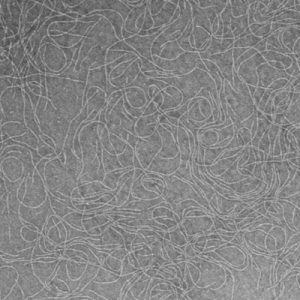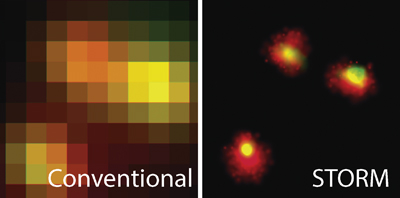
About
The main goal of our group is to use Super Resolution Microscopy (nanoscopy) to visualize and track in living cells and tissues self-assembled nanomaterials with therapeutic potential (nanomedicine).

The understanding of materials-cell interactions is the key towards the development of novel nanotechnology-based therapies for treatment of cancer and infectious diseases.
Our group aims to use a multidisciplinary approach, at the interface of chemistry, physics and biology, to develop novel nanomaterials for the treatment of cancer and infectious diseases.
We aim at the development of novel nanocarriers for drug delivery based on self-assembly, i.e. able to build themselves. Molecular self-organization is ubiquitous in the biological world and represents for us a source of inspiration for the design of nanostructures with biomedical potential. In particular we focus on the development of self-assembled nanoparticles and nanofibers able to selectively target diseased cells and deliver locally therapeutic moieties such as drugs and genetic material (e.g. DNA, siRNA, mRNA).

Right: Nanoparticles interactions with blood components imaged with conventional optical microscopy (left) and super resolution STORM microscopy (right).
A key point towards the development of novel nanotechnology-based therapies is the understanding of the behavior of nanomaterials in the complex biological environment. Here we use super resolution microscopy to track nanomaterials during their voyage in the biological environment and to visualize the interactions with blood components, immune system and target cells. We make use of a variety of super resolution techniques based on single molecule detection such a stochastic optical reconstruction microscopy (STORM), photoactivated localization microscopy (PALM), point accumulation for imaging in nanoscale topography (PAINT), and single particle tracking (SPT). These methods allow to achieve a resolution down to few nanometers and are therefore ideal to visualize nanosized synthetic objects in the biological environment. Super resolution microscopy provides a molecular picture of structure-activity relations and represent a guide towards the design of innovative materials for nanomedicine.
Staff
Projects
International grants
| NANOSTORM Design of Nanomaterials for Targeted Therapies Guided by Super Resolution Imaging (2018-2023) | ERC, European Commission | Lorenzo Albertazzi |
| THERACAT BIO-orthogonal catalysis for cancer therapy (2018-2022) | MARIE CURIE, European Commission | Lorenzo Albertazzi |
National grants
| STROMATARGET · Polímeros supramoleculares dirigidos al microambiente tumoral: validación mediante técnicas de microscopía avanzada (2020-2023) | MINECO: Retos investigación: Proyectos I+D | Silvia Pujals |
| Collaborative Research Projects AOM-BIST | BIST | Lorenzo Albertazzi |
| Understanding and measuring mechanical tumor properties to improve cancer diagnosis, treatment, and survival: Application to liquid biopsies (2017-2021) |
Obra Social La Caixa | Lorenzo Albertazzi |
Finished projects
| NANOVAX Nanovacunas diseñadas para inmunoterapia antitumoral (2016-2020) | Acciones de Programación Conjunta Internacional, MINECO | Lorenzo Albertazzi/Josep Samitier |
| Novel approaches for Pandemic Virus Targeting Using Adaptive Polymers (2015-2017) | AXA Research Fund | Lorenzo Albertazzi |
| TARGETSTORM Nanomateriales para terapias dirigidas contra el cáncer visualizados con microscopia de súper resolución STORM (2016-2019) | Retos investigación: Proyectos I+D, MINECO | Silvia Pujals |
| SGR Grups de recerca consolidats (2017-2019) | SGR, AGAUR | Silvia Pujals |
Publications
(See full publication list in ORCID)
Equipment
- Nikon NSTORM for TIRF, Super-Resolution imaging and single-molecule tracking
- Nikon Ti2 Widefield microscopy for fast and high-content imaging
Collaborations
- Roey Amir
Tel Aviv University, Israel - Mika Linden
Ulm University, Germany - Ilja Voets
Eindhoven University of Technology, The Netherlands - Giovanni Pavan
SUPSI, Switzerland - Bruno De Geest
University of Ghent, Belgium - Salvador Borros
IQS, Barcelona
News
[wp_show_posts id=”75038″]
Jobs

